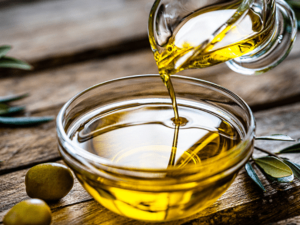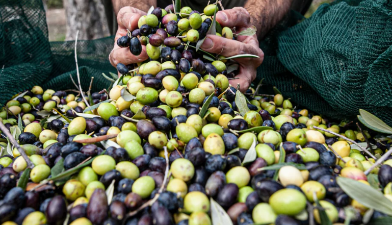Olive Oil Is the New Superfood—Here’s Why
The olive tree is a plant native to the Mediterranean basin. Olive oil is the oil extracted from its fruit. The ancient Greeks highly valued olive oil, with the Greek poet Homer even calling it "liquid gold." At that time, cutting down an olive tree was punishable by death.
The olive tree is a plant native to the Mediterranean basin. Olive oil is the oil extracted from its fruit. The ancient Greeks highly valued olive oil, with the Greek poet Homer even calling it "liquid gold." At that time, cutting down an olive tree was punishable by death.
Is olive oil the best vegetable oil?
We all say that one oil differs from another in its fatty acid composition. Olive oil is highly praised because it contains 70% oleic acid, also known as an unsaturated fatty acid. This substance does have many health benefits and is considered healthier according to international food safety standards.

What are the criteria for healthy oil?
- Fatty acid composition: Healthy oils should be rich in unsaturated fatty acids, such as monounsaturated and polyunsaturated fatty acids, while containing a low amount of saturated fatty acids. Unsaturated fatty acids help lower cholesterol levels and protect cardiovascular health.
- Oxidative stability: Healthy oils should have good oxidative stability, meaning they can be stored for long periods without oxidizing or spoiling. The oxidation of oils produces harmful free radicals, which are harmful to human health. Antioxidant-rich oils, such as olive oil and soybean oil, have good oxidative stability. Olive oil helps the brain fight oxidation and slows memory loss.
Olive oil is rich in antioxidants that protect the brain
Excessive free radicals in the body can accelerate aging. Excessive free radicals in the brain can also damage tissue and cells, leading to heart disease, Alzheimer's disease, Parkinson's disease, and cancer. Olive oil is rich in over 30 phenolic compounds, which are excellent antioxidants and free radical scavengers.
Olive oil is also rich in essential vitamins E and K. Vitamin E helps prevent mental decline, memory impairment, and memory loss, and can significantly reduce the risk of Alzheimer's disease. Vitamin K, found in many leafy green vegetables, helps maintain a sharp brain, improves processing speed, and protects against Alzheimer's disease. For those who don't enjoy vegetables, cooking with olive oil can help them get the vitamin they need.
Olive oil promotes the growth of brain-stimulating factors
Another surprising benefit of olive oil is that it can increase levels of two important brain chemicals: brain-derived neurotrophic factor (BDNF) and nerve growth factor (NGF). These two compounds promote the formation and repair of brain cells.
BDNF is a protein that stimulates the formation of new brain cells and can also offset the negative effects of stress on the brain. Low levels of BDNF can lead to depression, anxiety, and other problems. NGF, on the other hand, promotes the growth and repair of sensory nerve cells. These sensory nerve cells are responsible for transmitting information such as vision and sound. Furthermore, the monounsaturated fats found in olive oil increase levels of acetylcholine, a neurotransmitter involved in memory and learning.

Tips for Using Olive Oil
-Olive oil doesn't like high temperatures. To preserve its nutritional content, many olive oils are cold-pressed from olives. The temperature during processing never exceeds 30°C. Olive oil is suitable for salads and cold dishes, but not for high-temperature stir-frying. Stir-frying with oil destroys its antioxidants, thus losing the nutritional benefits of cold-pressed olive oil.
-If you want to stir-fry or cook, be sure to choose non-cold-pressed olive oil. Don't heat the oil until it smokes before cooking, as you would with regular soybean oil. Using a hot pan with cold oil is a better way to preserve the olive oil's nutrients.
